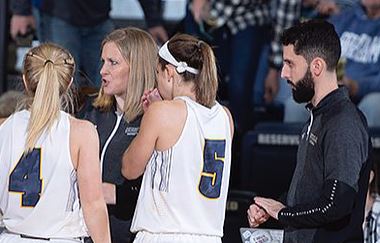09.26.19Two Great Coaching Videos from John Leonzo

Last week I had the pleasure of doing an interview with John Leonzo on his basketball coaching podcast, Full Timeout. John is assistant coach of women’s basketball at Cedarville University. In addition to a great conversation about coaching and teaching, he mentioned in the intro that he had a website where he posted coaching videos. I hadn’t known that so I spent some time over the weekend checking it out. Not surprisingly, given what I know about John’s work, I thought it was great.
I should mention that I am NOT a basketball guy, as may become clear from this post but I wanted to share some things I really liked.
- Preparing for Complexity.
I recently posted about an insight that ECNL President and coaching deep-thinker Christian Lavers shared with me. The idea was that to prepare athletes to execute a skill or tactical concept under a complex conditions–and soccer and basketball games are always complex conditions–training activities should often start from transition so players have to put themselves in position to be able to execute rather than starting in an ideal position to execute.
This video is a great example of how you might apply that idea to a skill like 1 v 1 defending:
It’s 1 v 1 to the basket but the defensive player has to recover from an unpredictable position. She has to establish the ideal position; that’s half the battle and a much more realistic take on the challenges she’ll face in the game. What percentage of practice defending involves the player or team already positioned ideally? [A lot; maybe most.] In that case half the work is already done.
2. Using Background Knowledge to Facilitate Decision-Making
I loved this video as well because it addresses one of the biggest gaps in teaching and coaching: shared knowledge.
Many teachers and coaches want to believe that we can teach athletes to problem solve and make ideal decisions without investing intentionally in their background knowledge, but cognitive science is really clear. Problem solving and critical thinking are domain specific. The more you know the better your decision-making.
Times 100 for team sports in which we want athletes to coordinate their decisions very quickly so their actions make sense together. Usually what we call problem solving is well coordinated individual decisions made at speed. To do that we need mutual understanding. We want a pass from a player who’s just penetrated the lane to signal more information to her own team than to the opposition. All five teammates should know that the player who receives the first pass will quickly look to pass again to find a shooter. They can prepare their positions and begin looking for opportunity. Shared knowledge of principles (e.g. penetrate-pass-pass) is critical to better team ‘thinking’ but few teams take the time to make knowledge and principles legible to players in an intentional way.
Anyway, thanks to John for sharing. There’s a bunch more great video and material on his website: https://www.leonzobasketball.com/